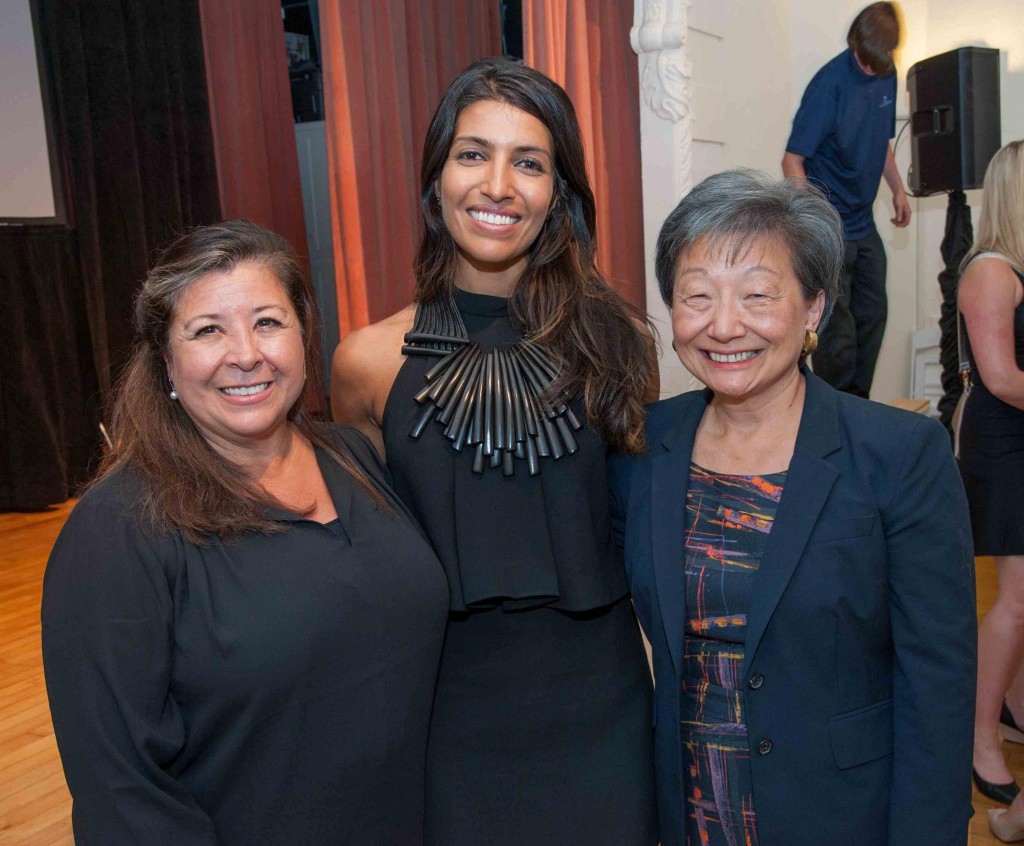The data is jarring. 66 percent of the world’s work is performed by women yet they earn less than 10 percent of the world’s income and own just 1 percent of the world’s property.
The latest event in the Center for Civic Engagement Future40 Series explored this topic of equity and women in business through the lens of Leila Janah, and her path to leadership and social change.
Recognized as one of the Most Powerful Women Entrepreneurs and Most Powerful Women to Watch, Leila is a social entrepreneur who fights for equity every day through her nonprofit organization, Sama Group. By leveraging a new tool, “impact sourcing,” Sama Group provides women and underserved workers worldwide with the training and support to build careers that were once unattainable.
[Tweet “Impact sourcing gives underserved workers the training to build careers that were once unattainable.”]
Through Leila’s own path to success and the stories told at the event about underserved individuals her company supports, the Future40 event painted a clear picture regarding the true value women can provide when given the resources and opportunities.
Turning Speech into Action
The event also marked the one-year anniversary of The San Diego Foundation CEO and President Kathlyn Mead, as well as the introduction of Connie Matsui as Chair of The San Diego Foundation Board of Governors.
Connie, a lifelong advocate for civically-engaged women, spoke to the audience about progress and change. “Overcoming barriers is difficult, but all of us need to lean in to the future we want and need,” she asserted. “Female leadership and the development of women is crucial to create diversity in our community and economy.”

Kathlyn and Leila also discussed what could be done day-to-day to create more gender equity throughout San Diego.
Leila outlined her personal strategies, stating, “What makes the difference for women I work with is making experiences relevant. By showing young females that there are people in executive positions that look just like them and come from similar backgrounds , we eliminate the illusion that certain career paths and dreams are impossible.”
Kathlyn added to that, urging the audience to “share information widely and think about the impact we can have simply by commending the value of female peers or forwarding resources and opportunities that would help women achieve greater success.”
Measure of Progress
One notable area where gender equity is moving forward is through California Senate Concurrent Resolution No. 62 (SCR 62). The measure proposes an increase of at least 20 percent in gender balance at the highest executive levels of the state’s public companies.
To put that into context, in a recent study by UC Davis, researchers found that men outnumber women eight to one among directors and highest-paid executives at California’s largest public companies.
What’s even more alarming is that over 100 of California’s top companies have zero female representation at these levels. While San Diego is slightly above the statewide average, women still only make up 14 percent of public company directors and top executives in the region.
Whether through larger initiatives such as SCR 62, or the accomplishments of individual female leaders, San Diego will become a more equitable and vibrant region if we all play a role.
We encourage you to join the conversation and get involved.




